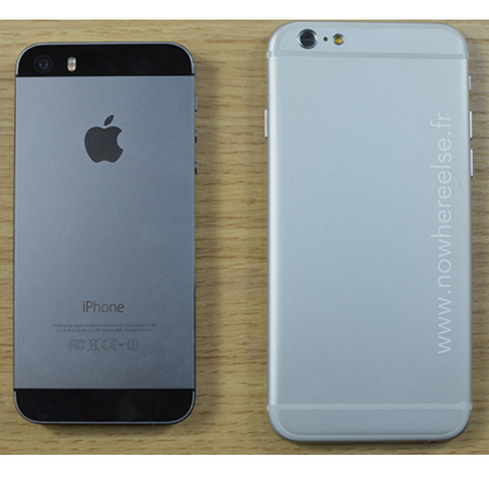Apple Bans Two Toxic Chemicals
For the first time, Apple has published its list of regulated substances for manufacturing.


iPhone 6: 8 Ideas Ripped From Rivals?
iPhone 6: 8 Ideas Ripped From Rivals? (Click image for larger view and slideshow.)
Apple has banned the use of two toxic chemicals in the final assembly of its iPhones and iPads in an effort to promote healthier working conditions at factories making its devices.
In a statement posted on the company's website, Lisa Jackson, Apple's VP of environmental initiatives, announced the first public release of Apple's Regulated Substances Specification, a document that describes restrictions on the use of specific chemicals at the company's manufacturing facilities and those of its supply chain partners.
Apple's rules now forbid its suppliers from using benzene and n-hexane, employed as cleaning agents, in the final stage of device assembly. The US Centers for Disease Control & Prevention notes that exposure to benzene can harm bone marrow and cause leukemia, while n-hexane can cause neurological damage and motor function problems.
[iOS is still in good graces, but maybe not for long. See Apple's Dominance Of Enterprise Mobility Slips.]
Apple first acknowledged reports about the use of these chemicals in its 2011 Supplier Responsibility Progress Report, a document the company began releasing in 2007. The company's 2011 report said it learned in 2010 that 137 workers at the Suzhou, China, facility of contract manufacturer Wintek had suffered adverse health effects following exposure to n-hexane. In response, Apple directed Wintek to stop using the chemical. But concerns about chemical exposure at other manufacturing facilities have remained an issue among environmental and labor groups.
"Recently, we received some questions about whether the chemicals benzene and n-hexane are used in the manufacturing of our products," said Jackson in a statement. "Apple treats any allegations of unsafe working conditions extremely seriously. We took immediate investigative action, sending specialized teams into each of our 22 final assembly facilities, and found no evidence of workers' health being put at risk."
Apple's four-month investigation followed a campaign launched in March, and protests at the flagship Apple Store in New York the following month, by China Labor Watch and Green America. The two labor advocacy groups gathered signatures to encourage Apple to "stop poisoning Chinese workers." The groups state that other companies, including BlackBerry, Nokia, Samsung, and Sony, make smartphones using the same contract manufacturing companies (such as Foxconn, Pegatron, Quanta, and Primax), but Apple has been targeted because of its position as an industry leader.
The campaign, online at www.bad-apple.org, acknowledges that it's difficult to know how many workers have been affected by occupational poisoning in China. But the groups cite a 2010 report that identified 42,890 workplace poisonings in China, with a 16.5% mortality rate, from 1991 through 2008.
Averaged out over 18 years, that's about 2,383 occupational poisonings annually in China with about 393 workplace poisoning deaths each year. In the US, which has more than four times fewer people than China, there were 130 work-related deaths in 2008 due to contact with caustic or noxious substances, according to the National Safety Council.
Though not directly comparable, the US Environmental Protection Agency estimates that there are somewhere between 10,000 and 20,000 physician-diagnosed pesticide poisonings among the roughly 2 million US agricultural workers every year.
In a phone interview, Gary Cook, senior IT analyst with Greenpeace, a group that has challenged Apple to be more responsive to environmental and energy concerns over the years, said, "Apple's announcement this week is an important step for the company, and a step that other companies in the sector should follow, in terms of being responsive to customers."
Cook singled out the release of Apple's Regulated Substances Specification as a milestone because it invites greater accountability.
Apple has made significant improvements in its environmental and energy practices in the past two years, Cook said.
"There's still a long way to go," Cook said, "and Apple is aware of that, but they've shown they're willing to change. Apple is certainly among those who are leading in terms of environmental performance, and this is an important step toward increasing their transparency."
In its ninth year, Interop New York (Sept. 29 to Oct. 3) is the premier event for the Northeast IT market. Strongly represented vertical industries include financial services, government, and education. Join more than 5,000 attendees to learn about IT leadership, cloud, collaboration, infrastructure, mobility, risk management and security, and SDN, as well as explore 125 exhibitors' offerings. Register with Discount Code MPIWK to save $200 off Total Access & Conference Passes.
About the Author
You May Also Like






